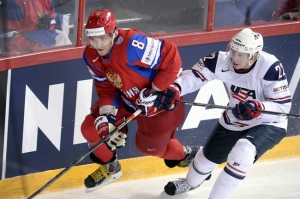Tweet
On January 27, 2013, the Associated Press reported that it had received an email from NHL Deputy Commissioner Bill Daly which stated that the NHL expects to send its players to the upcoming Sochi Olympics, but that the league may change its mind if there is “an unreasonably dangerous situation” in Sochi. The NHL, IOC, and IIHF came to an agreement earlier in 2013 where the NHL agreed to halt its season so its players could play in the Olympic hockey tournament, in exchange for certain media rights, player treatment assurances and insurance coverage. In the past few weeks, there have been multiple news stories about security concerns at the Sochi Games. Such news stories may have prompted Daly to express concern that “an unreasonably dangerous situation” could occur in Sochi. While it is impossible to know the actual answer without seeing the contract, Deputy Commissioner Daly’s comment suggests that the NHL could rely on a force majeure clause in their contract with the IOC if they were to keep NHL players from participating in the Sochi Games.
A force majeure clause is a contract clause that is often added to commercial contracts to allow the contracting parties to deem the contract null and void if an event occurs that both frustrates the purpose of the contract and is outside the control of the contracting parties. Force majeure clauses are sometimes referred to as “Act of God” clauses, because extreme weather events, like hurricanes, tornadoes, drought, floods, volcano eruptions and earthquakes are all examples of events that could frustrate the purpose of the contract and would be out of the control of both parties (unless of course the contracting party was Mother Nature). However, force majeure clauses often include events that are caused by humans, but are not caused by the parties to the contract itself, such as war or rebellion, labor strikes or lockouts, and the unexpected government seizure of property. In addition, since the September 11th terrorist attacks, many force majeure clauses now include terrorism as an event that could trigger a force majeure clause. It is important to note that a force majeure type event simply occurring is not sufficient to trigger a force majeure clause. Rather, the event must actively affect a party or both parties to the contract in such a serious way that one or both of the parties are unable to perform their part of the contract.
The inclusion of terrorism in the force majeure clause in its contract with the IOC could allow the NHL to keep its players from playing in the Sochi games. If a terrorist attack were to occur between now and the start of the Sochi games, such an attack could frustrate the purpose of the contract (NHL players competing in the Olympic games in safe and secure conditions), and such an attack would not be caused by either the NHL or IOC. If the NHL did actually invoke the force majeure clause to keep its players from the Olympics, any resulting litigation would likely center on whether the purpose of the contract was actually frustrated by the security incident or situation. The NHL could have difficulty if they argue that the threat of possible attack triggers the force majeurre clause, because it is unlikely that the threat of terrorism would actually frustrate the purpose of the agreement between the NHL and IOC. However, if an attack occurred that directly affected the treatment and experience NHL players were supposed to have during the Olympics, then the NHL would have a much stronger case.
Depending on the exact language in the NHL/IOC contract, the force majeure clause could have been what Deputy Commissioner Daly had in mind when he suggested the NHL would keep its players away from the Sochi Games. However, let’s all hope for everyone’s health and safety that the NHL will not have to consider invoking a force majeure clause and that the 2014 Olympic Games occur without incident.

Recent Comments